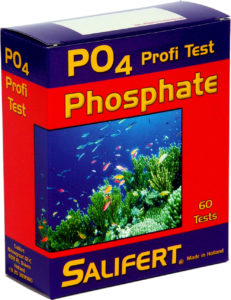 We are very confident there would be literally thousands of freshwater aquarium hobbyists who have never (or perhaps very very rarely) test their aquarium water chemistry, however we doubt very much there are anywhere near as many marine aquarium hobbyists who fall into this same category.
We are very confident there would be literally thousands of freshwater aquarium hobbyists who have never (or perhaps very very rarely) test their aquarium water chemistry, however we doubt very much there are anywhere near as many marine aquarium hobbyists who fall into this same category.
The reason you ask? Well frankly it’s due to the significant level of complexity involved in keeping a healthy marine aquarium. At the very minimum, you’ll find Alkalinity, Calcium, Magnesium, Salinty and possibly PH test kits or equipment in the marine hobbyists arsenal. Test kits for other elements are available, but most will agree that four or five of the kits mentioned are suffice to successfully enjoy a healthy marine aquarium.
Managing Chemistry With Marine Test Kits
Not managing the chemistry of a marine tank is fraught with risk. The complex balance between Calcium and Alkalinity alone requires regular testing, especially while the tank matures. There is no doubt that a mature tank requires less often testing as it is stable in its consumption of elements, but you can almost guarantee an experienced marine hobbyist with a stable tank still tests his/hers water periodically. Calcium, Alkalinity and Magnesium are crucial elements consumed by corals as they grow and need to be kept in very careful balance to ensure survival. Swings in Alkalinity have been the cause of many a bleaching or even death of prized corals.
When you add in salinity changes due to evaporation and possible PH swings due to photosynthesis drops or lack of ventilation, you can see why quality marine test kits and periodic testing are crucial to success. If any one of the above measures are left unchecked and drop or rise too far, it can result in disaster for the hobbyist and his or hers beloved aquarium inhabitants.
Testing and Controlling Nutrients
The above only discusses the chemical balance of elements in salt water. Marine aquariums are also demanding in the removal of nutrients in order to maintain low levels of often unsightly algae and promote coral growth and colour. Nutrients such as Nitrate and Phosphate are often problematic for the aquarist and need to be tested frequently. Any keeper of Small Polyp Stony (SPS) corals will be able to tell you just how much importance they place on maintaining relatively low levels of nutrients in their tank, and the only way they can do with is by monitoring the levels with test kits (and a with little experience using the naked eye of course) and taking course based on the results. Reliable results are obviously vital which is why using high quality marine test kits is so crucial to success.
In no way was this blog intending to paint marine aquariums as the more elite/challenging choice in the hobby. There is no doubt that complex planted aquariums and African cichlid aquariums have their demands as well (managing C02 and the Hardness/Softness of water can be difficult at times). However marine aquariums demand very regular testing of a wide range of elements and nutrients just in order to survive, let alone thrive and be successful. If your local aquarium store doesn’t stock a decent range of quality marine test kits, it might be time to ask why not, or perhaps start searching for a new local aquarium store.


